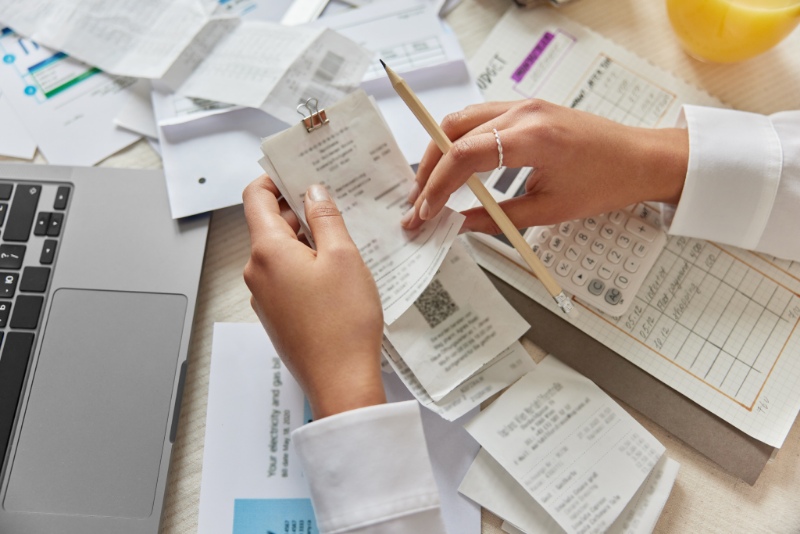Living below your means without sacrificing comfort and security must be emphasized in the current economic climate. This literary expedition will delve into what it means to ‘live below your means,’ offer poignant tips to help you live this way, and explore the numerous benefits of taking control of your finance. Let’s commence this journey toward financial freedom.
What Does It Mean to Live Below Your Means?
Defining ‘Living Below Your Means

When you hear the term ‘live below your means,’ it fundamentally means to spend less money than you make. This concept requires you to manage your money prudently, prioritize crucial expenses, cut down on non-essential items, and often make less costly choices to ensure your outlay is less than your earnings.
The Difference Between Living Beyond and Below Your Means

Living beyond your means is the polar opposite of living below your means. If you’re living beyond your means, it signifies that much of what you’re spending exceeds your paycheck. The lifestyles of many individuals who live paycheck to paycheck resonate with living beyond their means, often leading to escalating credit card debt and financial stress.
Why Living Below Your Means is Important

Learning to live below your means isn’t just a momentary strategy but a holistic approach toward personal finance. With today’s easy access to credit, it is tempting to overspend and live beyond our means. But, when you start living below your means, it provides financial stability and peace of mind knowing that you won’t have to worry about unforeseen expenses.
See Related: Highest-Paying & Best Trade Jobs
What Are Some Useful Tips to Live Below Your Means?
How to Downsize Your Expenses

Downsize your expenses by evaluating your monthly expenses and highlighting areas where you could spend less. You regularly dine out; consider reducing this luxury. Every dollar saved will help you live within your means.
The Role of Side Hustles

Side hustles have become a means to earn extra income. They can help you secure more money but remember, the goal is to make extra money and spend less than you earn.
The Right Way to Use Credit Cards

Credit cards can be beneficial tools if used cautiously, but they can lead to severe financial troubles if not handled responsibly. Choose to use credit cards only for crucial purchases and try to pay off the balance monthly to avoid credit card debt.
What Are the Benefits of Living Below Your Means?
Financial Freedom and Living Below Your Means

One of the significant benefits of living below your means is achieving financial freedom. By spending less, you can accumulate savings, which can be used to make investments, adding to your wealth in the long run. Also, you’ll be able to attain your financial goals faster.
Reduced Stress: The Psychological Benefits

Knowing how much you’re spending conveys a sense of control over your finances and alleviates financial stress. Knowing you’re not living paycheck to paycheck but saving will provide great mental peace.
Achieving Financial Goals by Spending Less

When you start living below your means, you make room for financial growth, making it easier to achieve your financial goals, like buying a home, starting a business, or retiring early.
See Related: What to do after a layoff? Things to do Now
How Can I Avoid Overspending and Live on Less Money?
Strategies to Spend Less Than You Earn

To keep your spending in check, start monitoring every dollar. Budgeting apps can provide a clear look at how much you’re spending and where adjustments can be made. Creating an emergency fund for unexpected expenses can also prove beneficial.
Setting Up an Emergency Fund

An emergency fund serves as a financial buffer. By diligently placing a part of your paycheck into this account, you ensure you have money for unforeseen bills, thereby preventing digging into your savings or increasing your debt.
Control Unnecessary Expenses and Overspending

The best way to live within your means is to eliminate unnecessary expenditures. Set limits on discretionary spending. This discipline will allow you to spend less money and keep from overspending.
How to Alleviate the Challenges of Living Below Your Means?
Ways to Monitor Every Dollar and Track Monthly Expenses

Breaking free from credit card debt and other liabilities, plus having a budget that tracks monthly expenses are cornerstones of living below your means. Use tools that help you track your income and expenses down to the penny to understand your financial situation better.
Breaking Free from Credit Card Debt

To live beneath your means, free yourself from mounting credit card debt. Focus on paying off your highest-interest debts first while keeping minimum payments on others. Then work your way through each debt.
How Savings Accounts Can Help You Live Below Your Means

Savings accounts can provide a safe place to park your money while earning some interest, further contributing to your plan to live below your means. Knowing a substantial amount in your savings account will give you the financial peace you need.
Ultimately, living below your means without compromising your lifestyle can give you unsurpassed financial freedom. Follow these tips to help you live below your means, budget effectively, and gain the power to take control of your finances.
FAQs
What are some ways to live below your means?
Following are some strategies to help:
1. Keep track of your spending habits to see where your money is going.
2. Reduce your living expenses and eliminate unnecessary expenses.
3. Make a conscious choice to live on less than you make.
4. Consider downsizing your house, car, or other significant assets.
5. Start a side hustle to increase your income. This can help you stay within your budget and ensure better financial health.
Why is living beyond your means a poor choice for personal finance?
Living beyond your means can lead to a cycle of debt and financial insecurity. It typically means you’re spending more than you’re earning, which can lead to credit card debt or loans to make ends meet.
This can negatively affect your credit score and overall financial health. Instead, living within your means can help build a better financial future.
How can choosing to live below my means help me in the long run?
Living below your means can help you save for the future, reduce or eliminate debt, and provide a safety net for unexpected expenses. It allows you to take control of your finances.
It also allows you to retire earlier or have money to pursue your passions. To start living below your means, knowing your income and spending habits and having a financial plan are crucial.
How can I spend less and save more?
There are a few ways to spend less. First, could you look at your expenses to identify what’s unnecessary? This could be a subscription you no longer use or dining out frequently.
Next, could you consider downsizing? For instance, opting for a used car instead of a brand-new one can save you significant money. You can also invest in a free budgeting tool or app to help you stay within your budget and save more.
How will making a conscious choice to live below my means affect my financial security?
Making a conscious choice to live below your means contributes to financial security. By spending less than your income, you’ll have a surplus to save for the future, invest, or pay off debts.
This minimizes financial stress and enhances your ability to handle future financial crises. Hence, it creates a foundation for long-term financial health and independence.
How can a side hustle help you live below your means?
A side hustle is an additional job that you do part-time to bring in extra income. That other income can help you live below your means by increasing your earnings.
Instead of spending that other income, you can use it to pay off debt faster, save for the future, or cover unexpected expenses. Over time, a substantial side income could help you achieve financial goals more quickly.
How can I downsize to live below my means?
Downsizing can be a practical way to live below your means. It could mean moving to a smaller, more affordable home, selling a brand-new car, and purchasing a cheaper, used one instead.
It could also involve spending less on entertainment or eating out. The main idea is to reduce your fixed expenses, giving you more money to save or invest.
How can I use credit cards wisely while trying to live below my means?
Credit cards can be a useful tool if used properly. To use credit cards wisely, always pay your monthly payment in full to avoid interest charges. Limit your credit card use to what’s needed, and avoid making impulsive purchases.
Check your credit card statement regularly to monitor spending and stay within budget. Some credit cards also offer rewards, which, if used carefully, can provide additional benefits.
How can cutting unnecessary expenses help you live within your means?
Cutting unnecessary expenses can greatly affect your financial health. These could be small, recurring costs like daily coffee shop trips or larger expenses like an unused gym membership. Identifying and reducing these costs can free up a certain amount of money in your budget, which can be used to save, invest or pay off debts faster.
Why maintaining control over your finances and living below your means is crucial?
Maintaining control over your finances and living below your means is crucial for a few reasons. First, it can prevent debt accumulation and help you pay off existing debt faster.
Second, it allows you to save more for future needs, retirement, or emergencies. Third, it reduces financial stress and provides a sense of financial security. Lastly, it helps you build wealth over time and achieve your financial goals.
Related Resources